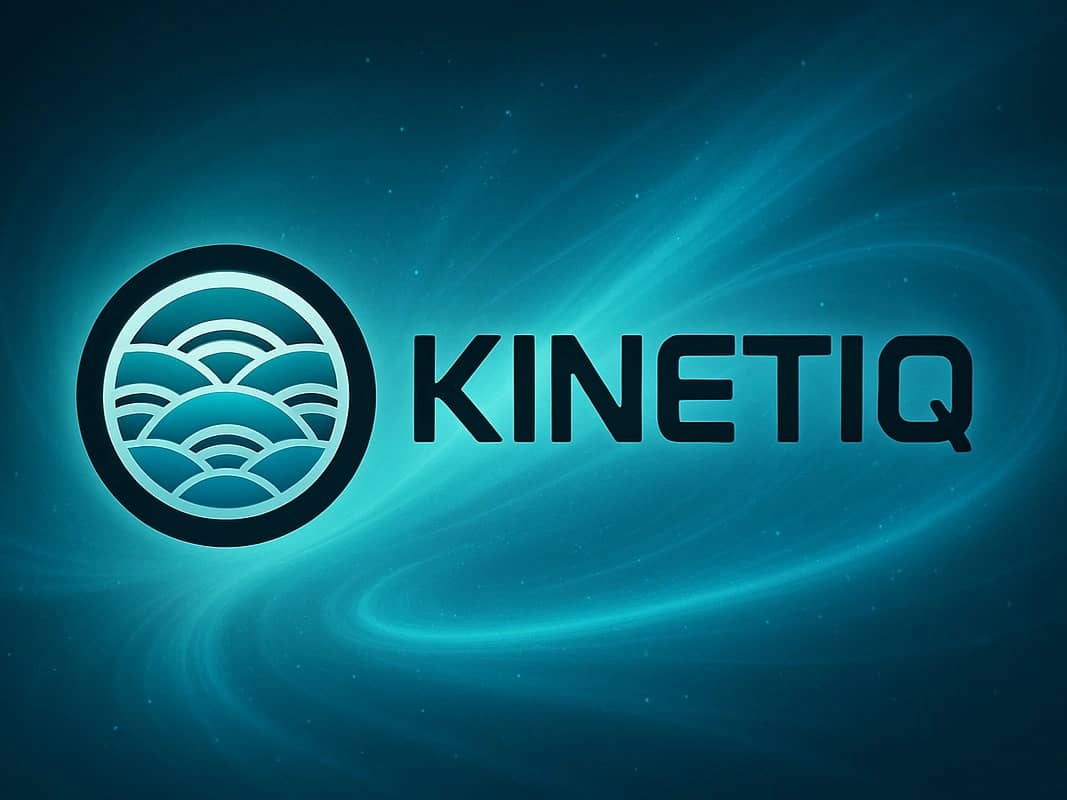订阅 wiki
Share wiki
Bookmark
Kinetiq
0%
Kinetiq
Kinetiq 是一个原生构建于 Hyperliquid Layer 1 区块链上的流动性质押协议。它的主要功能是允许用户质押 Hyperliquid 的原生代币 HYPE,以赚取奖励,同时获得一种名为 Kinetiq Staked HYPE (kHYPE) 的流动性质押代币 (LST),该代币可用于其他去中心化金融 (DeFi) 应用中。 [1]
概述
Kinetiq 由 Kinetiq Research 开发,旨在解决传统质押中的资本效率低下问题,在传统质押中,质押资产被锁定且无法在其他地方使用。通过提供 kHYPE 代币作为质押 HYPE 的流动性凭证,该协议使用户能够同时赚取质押奖励并参与 Hyperliquid 生态系统中的其他收益生成活动。该协议旨在通过鼓励更多 HYPE 被质押来增强 Hyperliquid 网络的安全性与去中心化。 [1] [2]
该协议的核心是一个名为 StakeHub 的自动化验证者管理系统,该系统以算法方式选择、监控并将质押资产委托给一组多样化的高性能验证者。该系统旨在优化用户的收益,同时降低与单个验证者性能相关的风险。Kinetiq 还提供专业产品,包括名为 iHYPE 的机构质押解决方案和一个名为 Launch 的交易所即服务 (EaaS) 平台,旨在降低在 Hyperliquid 上创建新的永续期货交易所的门槛。 [3] [1]
该项目的创始人,以化名 Omnia.hl 运营,将该协议的初始产品描述为 Hyperliquid 生态系统中更广泛增长的起点。在关于发布的声明中,Omnia.hl 说:“这真的只是一个开始……到目前为止你所看到的仅仅是一个热身。” [2]
历史
Kinetiq 的开发得益于 Hyperliquid 的 主网 升级,该升级启用了“CoreWriter 合约”,从而可以在网络上进行更复杂的智能合约交互。 [4] 该协议的主网发布计划于 2025 年 7 月 15 日进行。在发布前的一周,市场表现出显著的预期,超过 100 万个 HYPE 代币(当时价值约 4000 万美元)被排队从现有验证者处取消质押。这部分活动的大部分,总计 847,000 个 HYPE(3350 万美元),可追溯到三个大型钱包,表明主要代币持有者采取了一项战略举措,以便在其首次亮相时将资产重新部署到 Kinetiq 中。 [2]
在 2025 年 7 月中旬发布后不久,Kinetiq 启动了一个积分计划,以激励用户存款和参与。该活动是该协议早期增长的重要驱动力。总锁定价值 (TVL) 从 7 月中旬的约 4.58 亿美元增长到 2025 年 9 月 11 日的超过 21 亿美元。这一增长归因于新的 HYPE 存款(从不到 1000 万个代币增加到近 4000 万个代币)以及同期 HYPE 价格上涨 20%。该积分计划计划于 2025 年 10 月 16 日进行最终分配后结束。 [5] [6]
技术
Kinetiq 构建为 Hyperliquid Layer 1 上的原生协议,允许与区块链的核心基础设施深度集成,以实现高效运营和安全性。 [1]
核心机制
该协议的用户流程设计简单且自动化。
- 质押: 用户将 HYPE 代币存入 Kinetiq 智能合约。
- 铸造: 该协议铸造并向用户发送等值的 kHYPE 代币,这些代币代表他们对质押 HYPE 和应计奖励的索取权。
- 委托: 存入的 HYPE 会自动委托给 StakeHub 系统选择的一组验证者。
- 奖励累积: 质押验证者产生的奖励由协议收集并再投资,导致 kHYPE 的价值随着时间的推移相对于 HYPE 升值。
- 取消质押: 要赎回他们的 HYPE,用户将其 kHYPE 提交给协议。在 Hyperliquid 网络固有的强制性安全延迟期之后,用户可以领取他们最初的 HYPE 以及累积的奖励。 [1]
kHYPE 代币
Kinetiq Staked HYPE (kHYPE) 是代表用户质押头寸的流动性质押代币。它是一种产生收益的资产,专为可组合性而设计,这意味着它可以作为抵押品、在流动性池中使用或在 Hyperliquid DeFi 生态系统中进行交易。该代币遵循非重新计息模型;用户的钱包中 kHYPE 的数量不会增加,而是随着质押奖励添加到池中,kHYPE 和 HYPE 之间的汇率会增加。相关的代币 vkHYPE 也已推出,并于 2025 年 10 月 7 日在 Project X 平台上开始交易。 [1] [6]
StakeHub
StakeHub 是 Kinetiq 专有的自主验证者管理系统。它负责管理协议中质押的所有 HYPE,旨在优化回报,同时最大限度地降低风险。其主要功能包括:
- 算法选择: 它使用基于性能指标的评分系统来评估和选择 Hyperliquid 网络上最有效的验证者。
- 持续监控: 该系统主动跟踪验证者的正常运行时间和性能,以确保质押资产具有生产力。
- 自动重新平衡: StakeHub 动态调整其选定验证者之间 HYPE 的委托,以适应性能变化并最大限度地提高整体收益。
- 风险多元化: 通过将协议的质押分散到广泛的验证者集合中,它可以降低与任何单个验证者遇到停机或性能问题相关的风险。 [1]
产品与服务
除了其核心流动性质押功能外,Kinetiq 还为 Hyperliquid 生态系统中的不同用户群体提供多项专业服务。
机构专用 iHYPE
iHYPE 是一种专为机构客户设计的 HYPE 质押产品。它提供专为机构级平台和工作流程量身定制的功能和集成。Kinetiq 为此解决方案与 FlowDesk 和 IMC Trading 等公司建立了合作伙伴关系。2025 年 8 月 14 日,Hyperion DeFi, Inc. 成为 iHYPE 产品的首家机构存款人。 [3] [2]
Launch(交易所即服务)
2025 年 7 月 31 日,Kinetiq 宣布推出“Launch”,这是一个交易所即服务 (EaaS) 平台。这项服务使团队能够在 Hyperliquid 上部署自己的永续期货交易所,而无需满足 质押超过 1,000,000 个 HYPE(在宣布时价值约 4200 万美元)的巨额资本要求,这是 Hyperliquid 改进提案 3 (HIP-3) 规定的。该平台通过众筹机制促进了这一点,HYPE 持有者可以为他们希望支持的特定交易所项目贡献隔离的质押池,从而赚取该交易所交易费的一部分。Kinetiq 提供技术后端,包括验证者协调、治理工具和自动费用分配。 [3]
Kinetiq 的联合创始人兼首席技术官 Justin Greenberg 描述了该平台的愿景:“Launch 解锁了 Hyperliquid 上新的金融表达层。团队现在可以像在 Shopify 上开设商店一样轻松地启动交易所,而支持者则可以像在 Kickstarter 上一样支持他们相信的愿景。” [3]
安全
Kinetiq 的安全框架包括多层保护用户资产。该协议的智能合约已经过四家公司的独立安全审计:Spearbit、Pashov Audit Group、Zenith 和 code4rena。为了进一步激励安全研究,Kinetiq 在 Cantina 平台上维护着一个活跃的公共漏洞赏金计划。该协议还包含多项链上安全措施,例如紧急响应系统、关键功能的基于角色的访问控制、多重签名控制和安全的升级框架。 [7] [1]
团队
Kinetiq 由一位化名为“Omnia.hl”或“0xOmnia”的个人创立。Justin Greenberg 担任联合创始人兼首席技术官。该协议由 Kinetiq Research 实体开发和维护,Kinetiq Research 是 HypurrCo 生态系统的一部分,该组织支持在 Hyperliquid 上构建的项目。该项目在公开发布之前完成了一轮天使融资。 [2] [3] [8]
合作伙伴
Kinetiq 已经在 Hyperliquid 生态系统内以及与机构实体建立了合作关系。它是安全质押联盟的成员,并已与 DeFi 协议集成,包括 Veda、Felix、Valantis、Curve、Hyperdrive、pvp.trade、Pendle、Hyperlend 和 PRJX。 [7]
2025 年 6 月 25 日,Kinetiq 宣布与 Eyenovia, Inc. 建立合作伙伴关系,Eyenovia, Inc. 是第一家在美国公开上市的公司,其国库中持有 HYPE。此次合作促成了一个名为“Kinetiq x Hyperion”的联合品牌 主网 验证者的推出,该验证者由 Eyenovia 的 HYPE 持有量支持。验证者的基础设施由机构质押提供商 Pier Two 管理,该公司使用通过 SOC 2 认证的硬件。 [9]
发现错误了吗?
